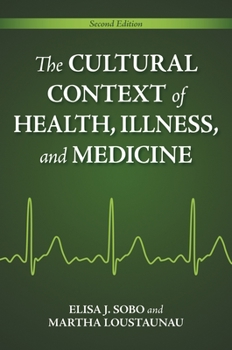The Cultural Context of Health, Illness, and Medicine
Select Format
Select Condition 
Book Overview
A "one size fits all" approach to health care doesn't work well, especially for America's extremely diverse population. This book provides a lively and accessible discussion of how and why a more flexible and culturally sensitive system of health care can--and must be--achieved.
Notable anthropologist George Foster defined the first edition as "a very readable introductory text dealing with the sociocultural aspects of health," adding: " T]he authors do a commendable job... . I have profited from reading The Cultural Context of Health, Illness, and Medicine". With engaging examples, minimal jargon, and updated scholarship, the second edition of The Cultural Context of Health, Illness, and Medicine offers a comprehensive guide to the practice of culturally sensitive health care. Readers will see America's biomedically dominated health care system in a new light as the book reveals the changes wrought by increasing cultural diversity, technological innovation, and developments in care delivery. Written by a sociologist and an anthropologist with direct, hands-on experience in the health services, the volume tracks culture's influence on and relationship to health, illness, and health-care delivery via an examination of social structure, medical systems, and the need for--and challenges to--culturally sensitive care. Cultural differences are situated against social-class differences and related health inequities, as well as different needs and challenges throughout the life course. In prescribing caring that is more holistic, culturally sensitive, and cost-effective, the work promotes awareness of pressing issues for health care professionals--and the people they serve.Format:Paperback
Language:English
ISBN:0313377855
ISBN13:9780313377853
Release Date:August 2010
Publisher:Praeger
Length:288 Pages
Weight:1.05 lbs.
Dimensions:0.9" x 6.1" x 9.1"
Customer Reviews
0 rating





